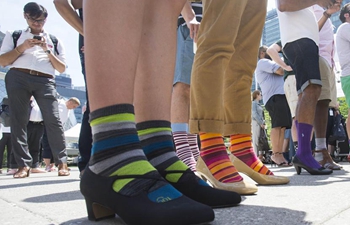CHICAGO, June 2 (Xinhua) -- Neighborhood characteristics such as racial composition and poverty rates are associated with increased risks of late-stage breast cancer diagnoses and higher mortality rates among urban black women, new breast cancer research showed.
Researchers at the University of Illinois (UI) conducted a systematic review of recent breast cancer research to explore possible associations between characteristics of urban neighborhoods and breast cancer rates among African-American women.
Among the factors they examined were neighborhood racial composition or segregation, poverty rates and access to mammography.
Residential segregation, which was defined as living in a neighborhood with a predominantly African-American population, significantly increased African-American women's rates of late-stage diagnosis and doubled their chances of dying from breast cancer, the analysis showed.
Comparable mortality rates were found among white women who also lived in predominantly African-American neighborhoods, the researchers found.
"This suggests that the environmental conditions associated with low-income neighborhoods, rather than race itself, increases women's risks of dying from breast cancer," said lead author Brandi Patrice Smith, a UI graduate student in food science and human nutrition.
Mortality rates and risks of late-stage diagnosis were significantly greater in low-income neighborhoods where women of any race had limited access to mammograms and follow-up care with physicians, Smith said.
The study comprised a sample of more than 93,600 black women living in various large cities and urban areas across the United States, while the dataset included patient information from state breast cancer registries in California, Georgia, Illinois, New York, North Carolina and Texas. Patients aged from 19 to 91 were tracked for an average of eight years.
Nearly half of African-American women in the United States live in urban areas and about 25 percent reside in low-income neighborhoods.
The study has been published in the journal Hormones and Cancer.













